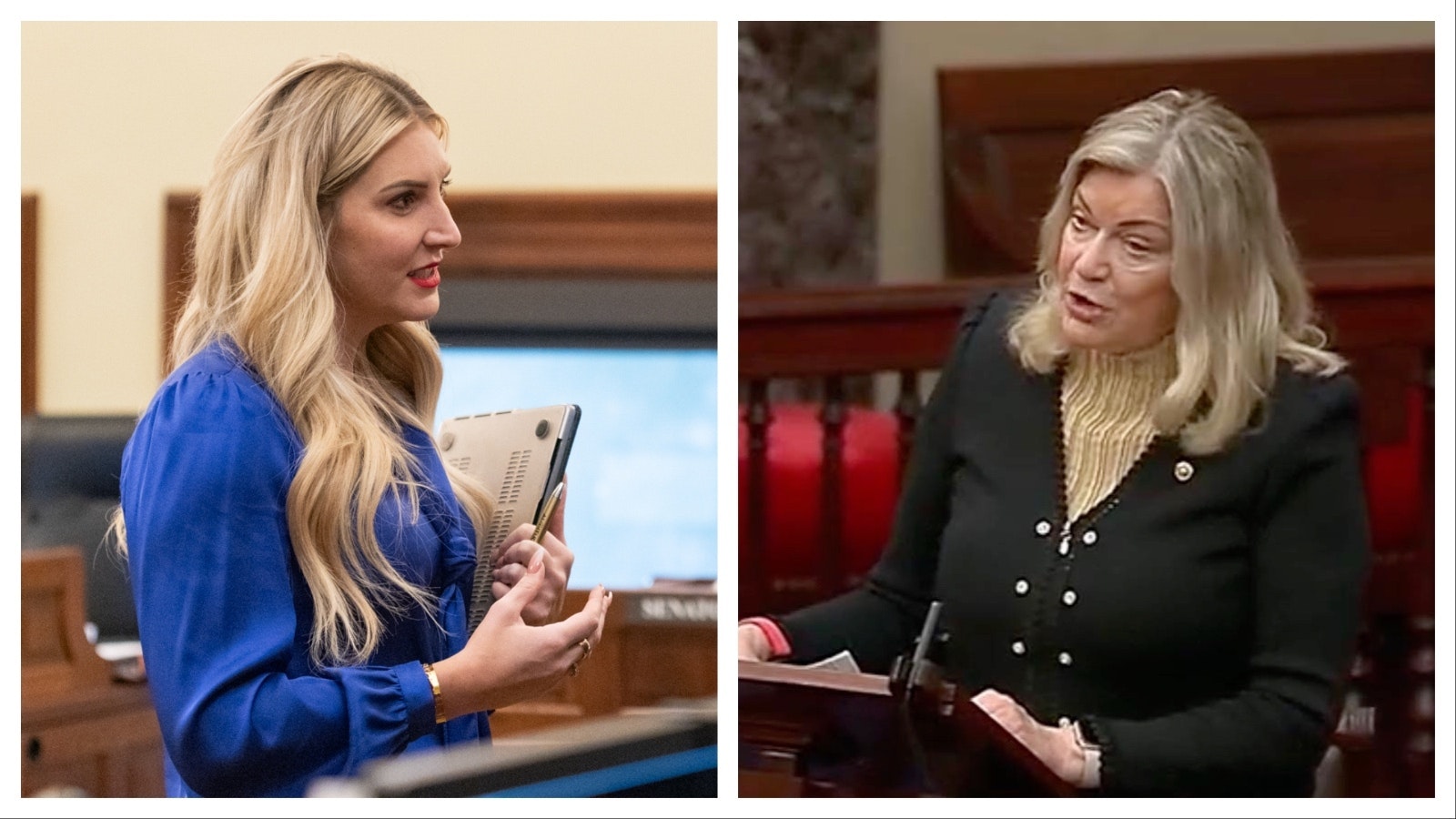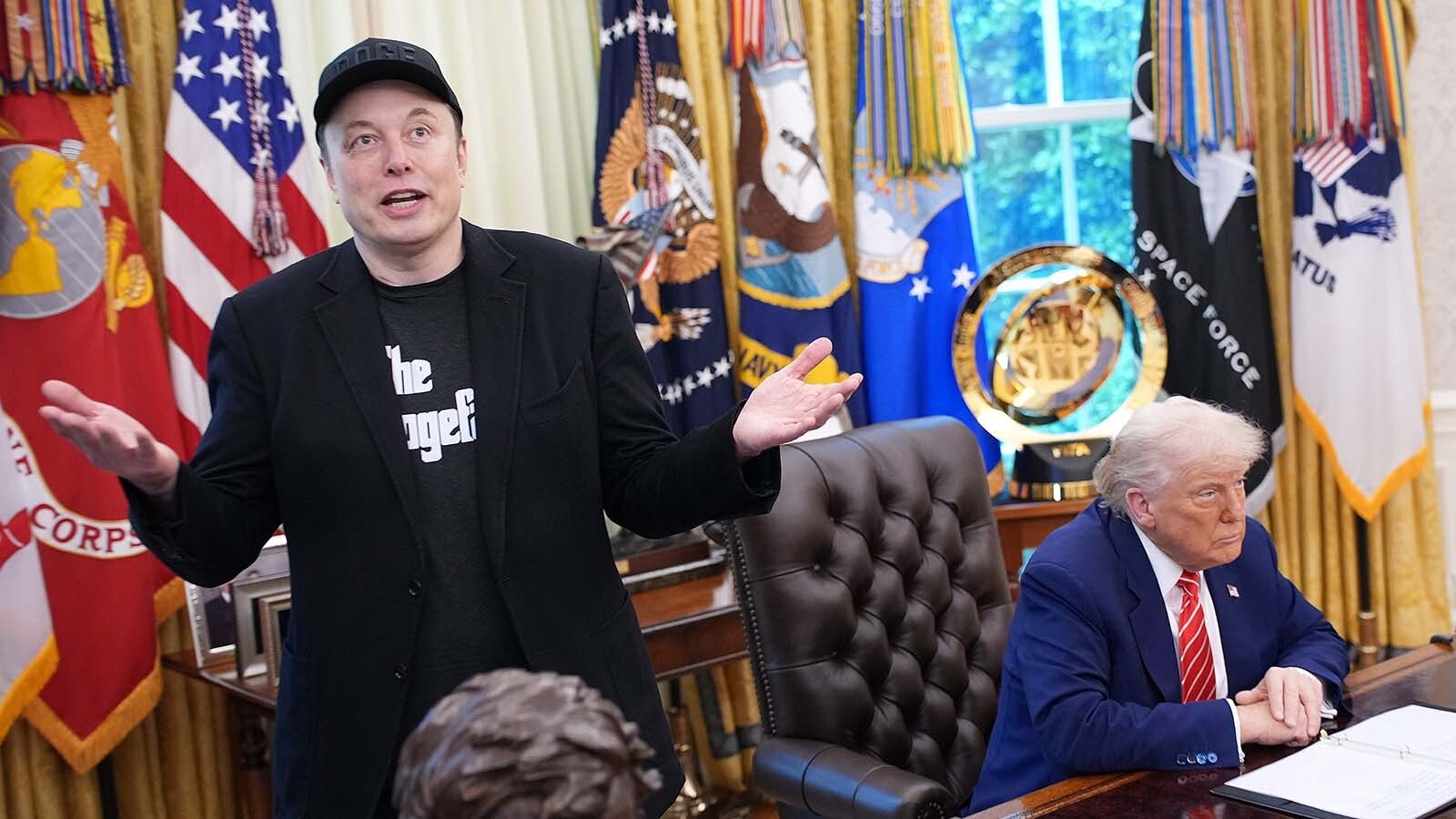Max Maxfield finds it both ironic and troubling that a candidate raising claims about the 2020 elections being fraudulent, may have committed election fraud themselves.
“I just think it’s important people know,” he said.
On Tuesday, Maxfield, former Wyoming Secretary of State, filed a complaint with the Federal Election Commission, asking the agency to investigate Rep. Chuck Gray, R-Casper for a roughly $298,000 loan he made to himself during his 2021 U.S. House campaign. According to Maxfield’s filing, Gray made less than $10,000 in income in 2021.
“I just think with such a huge amount of money, it doesn’t link up with his annual amount of income,” Maxfield told Cowboy State Daily.
Gray had already reported receiving $100,000 from his father, through a super Political Action Committee.
He is now running for Secretary of State, a position responsible for overseeing Wyoming’s elections. During his campaign, Gray has cast doubt on the security of Wyoming’s elections and has committed to strengthening regulations by eliminating drop box ballot boxes and making ballot harvesting a felony crime.
He has held free screenings of the “2000 Mules” movie during his campaign, a film that claims there was ballot harvesting and other irregularities in the 2020 election. No footage from Wyoming is shown in the movie.
Maxfield had already formally endorsed Gray’s opponent, State Sen. Tara Nethercott, R-Cheyenne, prior to filing his complaint.
“This frivolous, false filing, which was illegally leaked, is just liberal insiders who are trying to get Tara Nethercott elected working with the dishonest media to distract from Nethercott’s record,” Gray told Cowboy State Daily Tuesday night.
Maxfield said he found it “unbelievable” an individual would question the security of Wyoming’s elections. He said there have been four cases of electoral fraud prosecuted in the state since 2000.
“I’m very confident in the institution of our elections,” Maxfield said. “Wyoming has some of the most premier and secure voting in the country.”
Nethercott shared Maxfield’s concerns in an interview with Cowboy State Daily on Wednesday.
“It’s certainly illuminating and raises interesting questions about where Representative Gray’s income actually comes from for hard working folks in Wyoming,” Nethercott said.
Gray’s listed annual income puts him below both poverty and minimum wage levels in Wyoming, according to a Living Wage Calculation provided by MIT. In his campaign finance filings, Gray also reported he had investment income that put his total income at $15,000 in 2021 and $26,000 in 2022.
Maxfield isn’t so concerned about where the nearly $300,000 came from, but rather what he believes was an attempt from Gray to lie about the origin of the funds.
“The public can make a judgment about whether it was direct funds and the truthfulness in these disclosures,” Nethercott said. “It isn’t necessarily that he comes from a wealthy family, but why that is being obfuscated is really really suspect.”
Gray defended himself on Tuesday night, saying it was his funds that were used.
“It was all from me,” Gray told Cowboy State Daily. “The claim is frivolous and defamatory.”
According to Federal Communications Commission campaign filings, Gray has spent more than least $100,000 on TV and radio ads in the Secretary of State race so far. He has also enlisted at least one phone survey.
Gray also accused Nethercott of failing to include the “paid for” designation on her political yard signs. Nethercott said she wasn’t aware this was state law.
According to Wyoming state law, “small campaign items such as tickets, bumper stickers, pens, pencils, buttons, rulers, nail files, balloons and yard signs” are excluded from the requirement mandating disclosure of the source that paid for a campaign advertisement.
Federal law does require that yard signs have a “paid for” designation on them, but this law, according to the FEC, does not preempt state law.
These topics will likely be brought up during a PBS debate between the candidates next Monday in Casper.





